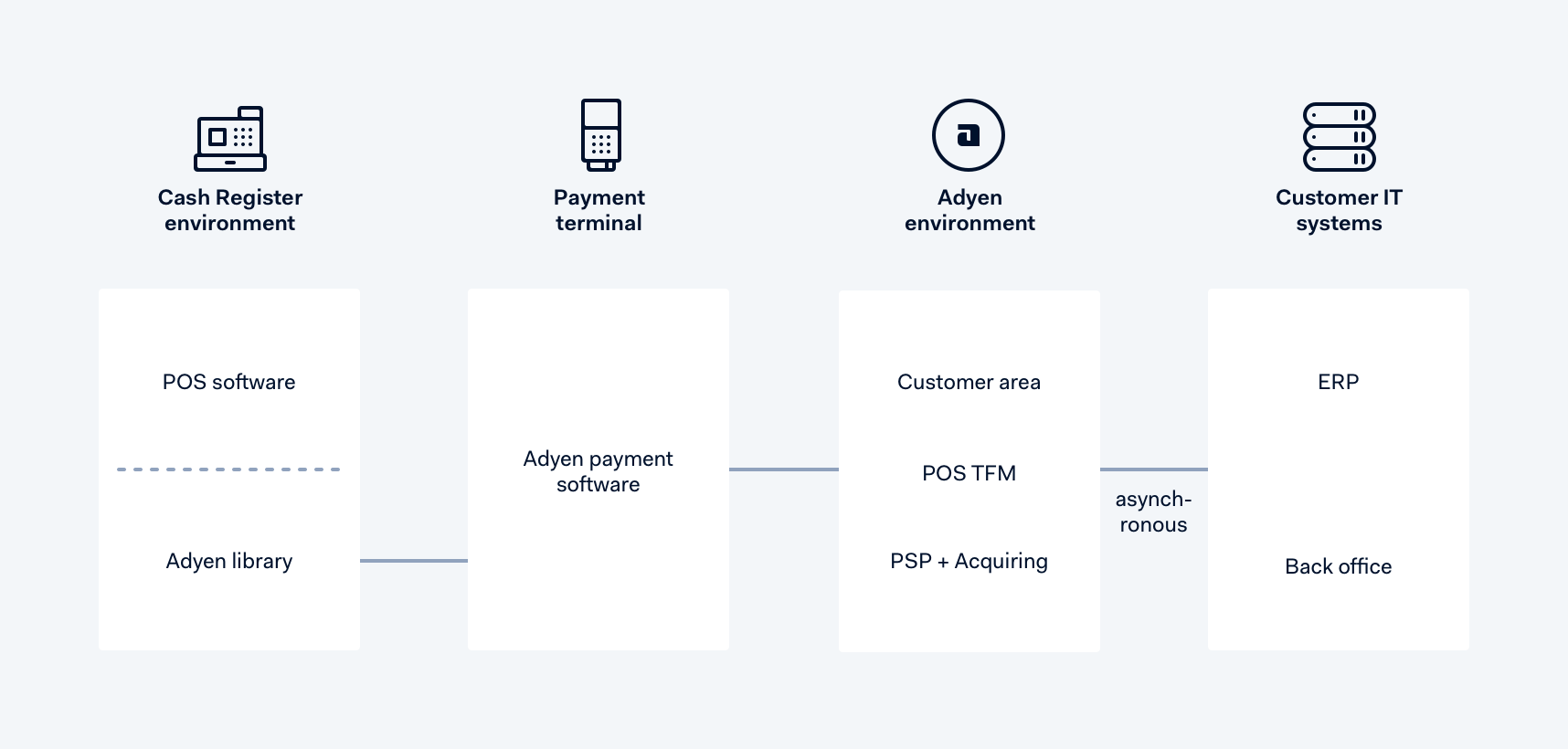We are discontinuing classic libraries. If you are currently using a classic library, you need to migrate to Terminal API.
Do not build a new integration with a classic library.
The Java Native Interface integration allows you to integrate your Java-based POS system with our terminals. It enables transactions, for example, sales, refunds, and so on. The supported Point-Of-Sale (POS) entry modes are: ICC, MSR and MKE.
Inherit Adyen classes
We supply two abstract classes (AdyenPed, AdyenPos) that must be extended by or inherited in your implementation. In our documentation, these are labeled MerchantPed and MerchantPos.
Architecture

The Adyen POS solution
The Adyen POS solution consists of:
- A PIN Entry Device (PED) (running Adyen's payment software)
- A library (integrated in the cash register environment)
- The plataforma de pagamentos da Adyen.
Your POS connects to the PED via a serial, Ethernet, Wi-Fi, Bluetooth or USB connection.
To perform online transactions, you must connect both the POS system and the PED to the Internet. The PED can connect to the plataforma de pagamentos da Adyen directly, or by using the POS system as a proxy, which requires a physical connection between the PED and POS.
You must authorize your POS system to connect to the plataforma de pagamentos da Adyen, at least during the deployment and boarding of new PEDs. The POS uses our C library functions to register associated PEDs. This allows you to exchange PEDs quickly and easily, and does not require you to store credentials on the device. This also means you do not need to contact Adyen to swap terminals. for example, in case of a replacement.
Multiple PEDs may be connected to a single POS system. The cash register application provides the staff with an interface to switch dynamically between these connected PEDs when required.